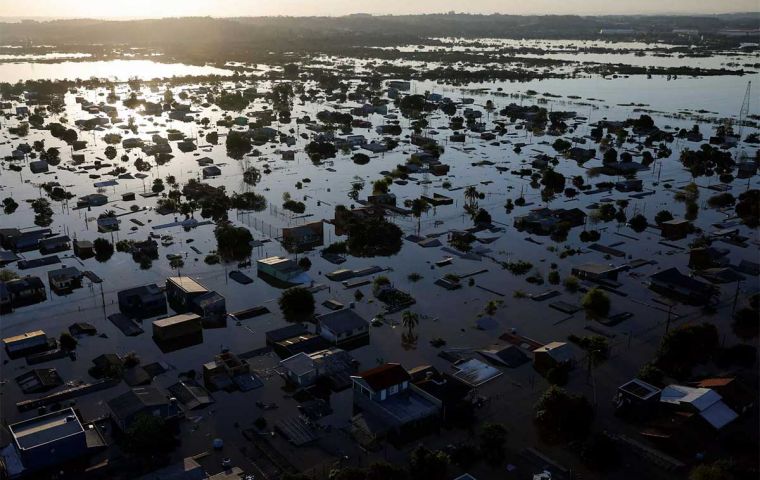
BRASILIA, May 27 (NNN-MERCOPRESS) — The first four deaths from the waterborne bacterial disease, leptospirosis, have been reported in the southern Brazil state of Rio Grande do Sul, where floodwaters following days of unprecedented rainfall have started to recede, but health authorities are warning of additional fatalities.
Rio Grande do Sul state’s health secretariat confirmed the four deaths of leptospirosis, and since the beginning of the deluge at least another 54 cases have been confirmed. Health experts had forecast a surge in infectious diseases such as leptospirosis and hepatitis.
The unprecedented over two weeks flooding has killed at least 165 people, with 82 still missing and over 600.000 forced from their homes, and has affected 2,3 million of the 10 million population of Brazil’s most southern state that has borders with Argentina and Uruguay.
“There are those who die during the flood and there is the aftermath of the flood,” said Paulo Saldiva, a professor at the University of Sao Paulo medical school who researches the impacts of climate change in health. “The lack of potable water itself will mean that people will start using water from reservoirs that is not of good quality.”
The disease’s symptoms include fever, muscle ache and nausea followed by vomiting. The disaster struck more than 80% of the state’s municipalities and damaged critical infrastructure. Over 3,000 health establishments — hospitals, pharmacies, health centers, and private clinics — were affected, according to a report from the federal government’s health research institute Fiocruz released last week.
“The outbreak of leptospirosis cases was somewhat expected due to the number of people exposed to the water, as well as other diseases,” said Carlos Machado, a public health and environmental expert who Fiocruz appointed to track the flood’s impact. “We have never seen in Brazil a disaster of this size and with such a large exposed population.”
Machado said that even though infrastructure, basic control services and health services have been disrupted, the local health department is working to offer prophylaxis to infectious diseases and guidance to people returning home on how to reduce the exposure risks.
The flooding and intense rainfall has also had a major impact on Rio Grande do Sul’s economy, which involves agriculture and cattle breeding. The federal government has promised massive aid to help recover infrastructure and the economy, and state debts have been to a great extent cancelled or suspended. — NNN-MERCOPRESS
